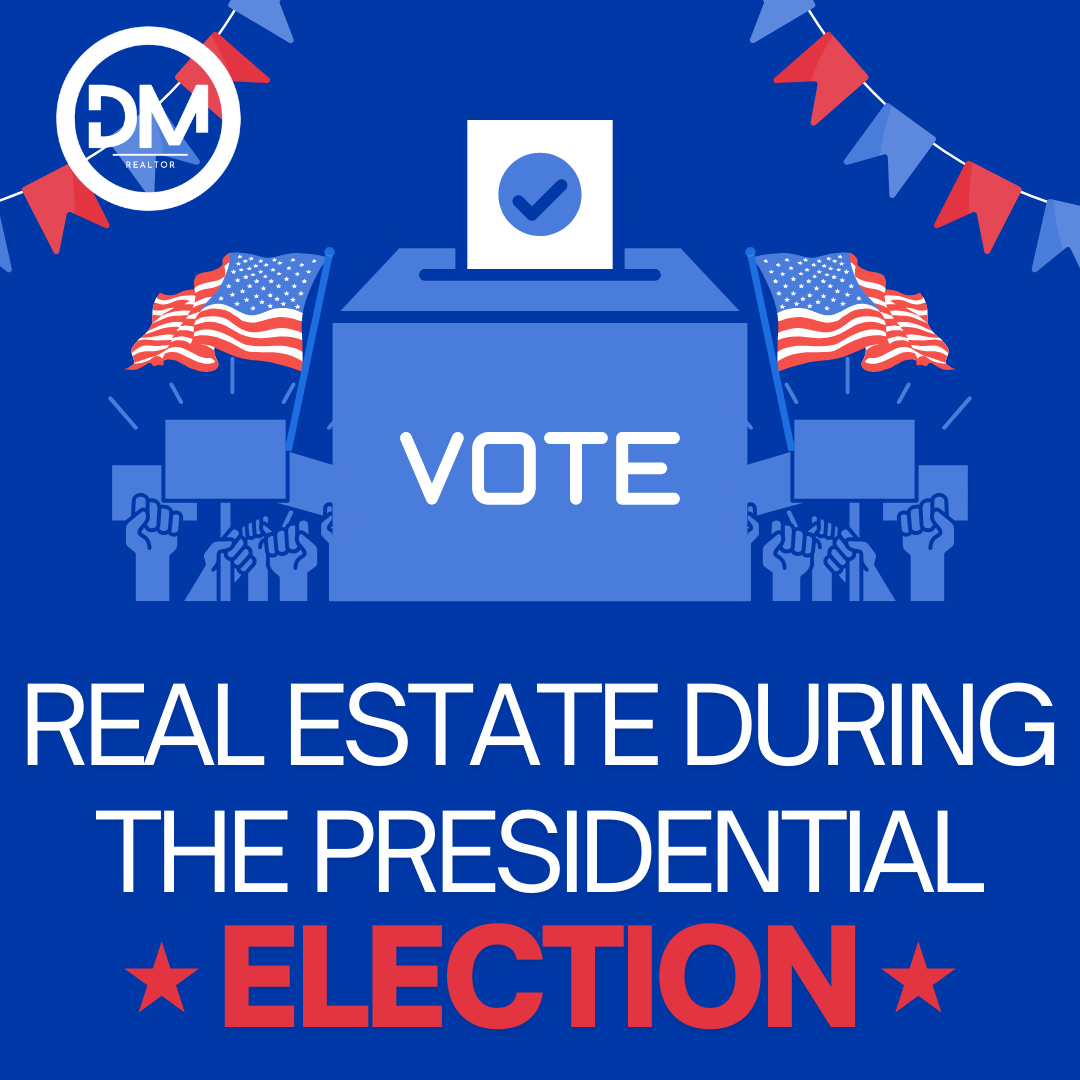With each election season comes a buzz of energy and attention on current events, debates, and future possibilities, and that heightened atmosphere often impacts various sectors—including real estate. From potential shifts in interest rates to market confidence, a few factors tend to influence real estate sales around election time. Whether you’re buying, selling, or considering a new investment property, here’s what to keep in mind about the real estate market during an election cycle.
1. The Influence of Market Uncertainty
One of the most significant factors affecting real estate during an election cycle is uncertainty. Buyers and sellers often hesitate to make big financial moves when the country is focused on who will lead next. This wait-and-see approach can lead to a slight dip in the market. Some prospective buyers might delay their decisions, especially if they anticipate changes in interest rates, taxes, or policies impacting housing.
However, this hesitation can also mean fewer competitors for those ready to buy. Sellers might see fewer offers, but buyers may have more negotiating power. As a result, real estate activity can become a bit more localized as people feel out the market and adopt a more conservative approach.
2. Potential Shifts in Economic Policy
The outcome of an election often brings shifts in economic policy, including tax laws, interest rates, and incentives for homeownership. For example, a new administration might prioritize homeownership by extending tax benefits, or it could focus on other economic areas that indirectly impact property values. This anticipation can create a small surge in activity if buyers feel a policy change will benefit them post-election or, conversely, if they think it will become less favorable.
Real estate professionals often suggest keeping an eye on proposed policies that could affect property taxes, mortgage interest rates, and tax deductions for homeowners. This context helps buyers and sellers plan for their transactions and gives agents an opportunity to share their expertise in how potential policy shifts could impact local markets.
3. Interest Rates: An Unpredictable Factor
Interest rates may fluctuate around an election cycle, influenced by both the Federal Reserve’s strategies and market reactions. If rates are expected to rise post-election, some buyers may act more quickly, hoping to lock in a lower rate. Conversely, if there’s anticipation of rate cuts, there may be a small lull as buyers wait for a potential advantage.
For sellers, it can be helpful to monitor how interest rates affect the buyer pool. When rates rise, buyers may be more cautious with offers, potentially pushing sellers to adjust pricing strategies. On the flip side, when rates fall, buyers’ purchasing power increases, which may benefit sellers who can command slightly higher prices.
4. How Buyer Behavior Changes
During election cycles, some buyers may prioritize stability, preferring to delay major financial decisions until the results are clear. However, others might see opportunity in a less competitive market. For real estate agents, understanding the mindset of buyers—whether they’re risk-averse or inclined to take advantage of slower conditions—can help them guide clients in making well-timed decisions.
This period can also be an excellent time for first-time homebuyers who might find that fewer seasoned investors are competing for the same properties. An awareness of this buyer behavior can give agents a helpful angle when marketing homes during election seasons.
5. Investors: A Different Story
Real estate investors, especially those with long-term strategies, often react differently to election cycles. While some may also adopt a cautious approach, others view the uncertainty as an opportunity to acquire properties at favorable prices. Investors tend to watch elections for signs of regulatory changes, tax reforms, or zoning regulations that could affect their investments.
Educating investors on current market conditions, upcoming policy proposals, and potential post-election market trends can be key to helping them make the right decisions, regardless of the election’s outcome.
Key Takeaways for Buyers and Sellers
- Patience Pays Off: Market hesitancy during elections is normal, but it’s temporary. Keeping a long-term perspective can help mitigate short-term fluctuations.
- Stay Informed on Policy Proposals: Whether you’re buying or selling, understanding proposed tax, interest rate, or housing policies can guide your timing.
- Embrace Local Expertise: Markets are often more influenced by local factors than national ones. Partnering with a knowledgeable local agent can provide insights that national trends alone might miss.
Election cycles can add an interesting dimension to real estate transactions. The effects on property sales may vary, but a good strategy is to stay informed, plan for potential shifts, and keep long-term goals in sight. Whether you’re a buyer, seller, or investor, understanding the market dynamics around election time can help you make the best decision for your real estate journey.

 Facebook
Facebook
 X
X
 Pinterest
Pinterest
 Copy Link
Copy Link
